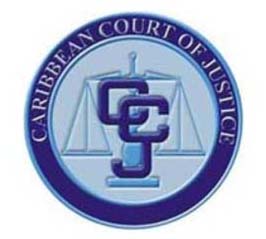The Caribbean Court Justice (CCJ) last Thursday dismissed an appeal by six former CLICO Belizean policyholders whose contention it was that their financial loss from the company’s 2009 liquidation was the result of the Supervisor of Insurance, Alma Gomez’s reckless handling of the Company.
In its ruling, the Court, noted among other things, “that neither the Supervisor nor anyone else could have foreseen CLICO’s sudden collapse,” holding further, that Gomez “had acted in good faith.”
The appellants; Kent Herrera, Nikita Usher, Valdemar Castillo, Vildo Marin, Eugenio Ek and Leonardo Varela of Executive Flexible Premium Annuity (EFPA) were policyholders of Belize’s branch office of CLICO (Bahamas) Limited.

The appellants said they suffered serious financial loss as they were unable to recoup their investment in the Company after it was liquidated, and so instituted action against the respondents seeking to recover their losses.
They premised their action primarily on the basis that section 26 of the Insurance Act Cap: 251 required the establishment and maintenance of a statutory fund designed to protect them against the type of loss they suffered.
Had the respondents, particularly, the Supervisor of Insurance not been reckless in her conduct of regulating CLICO specifically in her duty to maintain the statutory fund in a proper manner, the appellants are of the view that there would have been no losses.
The main issue to be decided by the Court, was whether the respondents could avail themselves of the statutory bar contained in section 4 (3) of the Act which states that “the respondents and any officer or person acting pursuant to any authority conferred by the Minister or the Supervisor, as the case may be, shall not be liable to any action in respect of any matter done or omitted to be done in good faith in the exercise or purported exercise, of the functions conferred by or under the Act.”
In arriving at the ruling it did, the Trinidad-based court of last resort embarked upon an enquiry as to whether the respondents had acted in good faith, and could therefore be protected from suit.
The Court found that “statutory good faith defences” were intended to relieve from liability to suit, public officials who acted “with honesty of purpose.” It placed the onus on the respondents to adduce sufficient facts and circumstances to avail themselves of the defence.
The CCJ analysed the case of Gulf Insurance v The Central Bank [UKPC] 10 on which the appellants relied, holding that unlike the Trinidad provision in that case, section 4(3) of the Belize Act expressly extended its protection to acts and omissions that fell outside the performance of the statutory functions of the relevant public official, provided the official was acting in good faith or purporting to act in fulfilment of duty.
The court reasoned that public officials should be held to basic standards of performance commensurate to the office they hold. It declared, “Where a public official recklessly disregarded those standards, it would be difficult, if not impossible to hold that they were acting in good faith.”
“If, however, the public official made genuine, honest attempts to meet the standards but failed to achieve them, then the public official could rely on the good faith defence,” the court further noted.
The Regional Court said that the defence offered protection to public officials “who were not fraudulent, or dishonest or in wrongful collusion with the impugned company, or who were so irresponsible as to be recklessly indifferent to the occurrence of foreseen risks.”
In this context, the Court concluded that recklessness was another way of establishing lack of good faith.
In considering whether the Supervisor was reckless, the CCJ observed that the Act afforded her a great degree of discretion in her administration and regulation of the insurance industry.
In particular, it noted that while section 13(2) of the Act empowered the Supervisor to sanction companies that failed to comply with pre-conditions for licensing and or licensing renewals, and section 16(1) empowered her to cancel licences, these sections did not suggest that the Supervisor “must invariably take the most drastic actions available.”
Similarly, it noted that section 31(b) expressly authorised the Supervisor to consider any explanations made on behalf of the company before giving directions where the company had neglected to furnish, in a timely manner, documents relating to their statutory fund requirement.
The Court examined the Supervisor’s conduct in the regulation of CLICO in three areas—the treatment of the EFPA’s, CLICO’s licence renewals and its obligations to provide stipulated financial statements and CLICO’s statutory fund.
The Court found that the overall impression was that the Supervisor was mindful of CLICO’s non-compliance issues and had taken steps to continuously prod the Company into fulfilling its statutory responsibilities.
The Caribbean Court said that while it refrained from commenting on whether the Supervisor could have been less lenient with CLICO, “neither lack of robustness nor inadequate results from her efforts were sufficient to take her acts and omissions outside the realm of statutory protection the Act afforded her.”
“Neither the Supervisor nor anyone else could have foreseen CLICO’s sudden collapse,” the Court remarked.
The Court noted also, that the Supervisor’s testimony that section 16(2) precluded her from cancelling CLICO’S licence when it had consistently neglected to establish its statutory fund at 100%, was consistent with her approach towards CLICO in continually pressing the company rather than pulling the plug on it.
In all the circumstances, the Court held that the Supervisor had acted in good faith and that the respondents were accordingly protected from suit.
To the appellants’ attempt at fixing liability directly to the State, they sought to submit that the good faith defence under section 4(3) was available to the Minister and the Supervisor, but not the State.
The Court noted that this argument was raised for the first time on appeal and agreed with the respondent’s objection that it was too late for it to be accommodated as the State would have been unfairly denied the opportunity to marshal its defence to meet that new contention.
The Court noted, however, that even if it was minded to allow the submission, the immunity would extend to the State as well by virtue of Section 4(4) of the Crown Proceedings Act.
That section states, “Any enactment which negatives or limits the amount of the liability of any Government department or officer of the Crown in respect of any tort committed by that department or officer shall, in the case of proceedings against the Crown under this section in respect of a tort committed by that department or officer, apply in relation to the Crown as it would have applied in relation to that department or officer if the proceedings against the Crown had been proceedings against that department or officer.”
The matter was heard by Justices Adrian Saunders who delivered the judgment; Jacob Wit, David Hayton, Winston Anderson and Maureen Rajnauth-Lee.
Lower Courts
Both the Belize Supreme and Appeal Courts had also found that the Supervisor’s conduct was not reckless and that she had acted in good faith.
For its part, however, the Supreme Court threw out the application which had been filed by the appellants after ruling that section 26 of the Act did not confer on the Supervisor an implied duty that was actionable by the appellants.
Additionally, the trial judge held that section 4(3) of the Act conferred on the respondents blanket immunity from suit.
The Court of Appeal upheld this finding declaring also that the Supervisor had acted in good faith in the exercise of her duties under the Act.
It, however, found that the statutory fund constituted security for the benefit of the appellants and that in accordance with the case of X (Minors) v. Bedfordshire, [1995] 3 AER 353 the respondents were in breach of the Act.
The Belize case will have resonance here as when CLICO (Guyana) Ltd collapsed in 2009 leaving CLICO customers in the bind, similar questions were raised about what the regulatory authorities should have done. The state in the end voluntarily reimbursed many customers whose investments were lost. One major client of CLICO (Guyana), the National Insurance Scheme (NIS) was left facing a loss of $5.6b. In 2016, the government formalised a deal through which the NIS will recover the amount over 20 years via a debenture.






